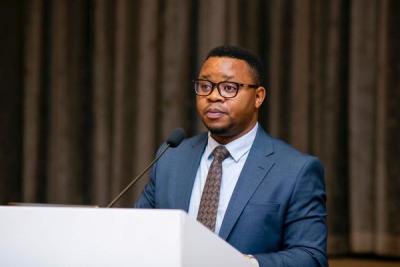Rwanda just pulled ahead of 53 other African nations with a massive $17.5 million investment from the Bill & Melinda Gates Foundation. The funding creates Africa’s first AI Scaling Hub, putting the East African nation at the center of the continent’s tech transformation.
The announcement came during a recent briefing with senators in Kigali. Yves Iradukunda, Minister of State in the Ministry of ICT and Innovation, revealed the funding amount more than doubles the initial $7.5 million promised earlier this year.
This positions Rwanda as the continent’s AI headquarters while other nations still struggle with basic digital infrastructure.
Gates Foundation Doubles Down on Rwanda AI Technology
The Gates Foundation’s decision to increase funding shows strong confidence in Rwanda’s ability to deliver results. The original commitment of $7.5 million grew to $17.5 million after seeing Rwanda’s progress.
“This is a project that will continue to grow, and its budget will increase over time. We appreciate the partnership with the Gates Foundation,” Iradukunda said during the briefing.
Rwanda’s Centre for the Fourth Industrial Revolution (C4IR) will host the hub under the Ministry of ICT and Innovation. The center already runs AI projects that boost diagnostic accuracy from 8% to 71% using locally trained Kinyarwanda language models.
The hub launches next year with plans to expand across multiple sectors. This timeline puts Rwanda ahead of competing nations that are still developing their AI strategies.
Rwanda AI Projects Target Real African Problems
The funding focuses on practical solutions for everyday challenges across health, education, and agriculture. Rwanda plans to deploy AI systems that work through simple channels like SMS and voice calls.
- AI-Powered Telemedicine Platform
Rwanda partners with Irembo to build a remote health system accessible through SMS, chat, and voice. Rural patients can consult doctors and receive digital prescriptions in Kinyarwanda. The AI triage tool analyzes symptoms and guides users to proper care.
This addresses a major problem across Africa where rural communities lack access to healthcare professionals.
- AI-Enabled Ultrasound for Rural Areas
Nurses and midwives will use AI-assisted ultrasound tools to detect pregnancy complications within minutes. The technology improves maternal health outcomes in regions without specialist doctors.
Current maternal mortality rates in rural Africa remain high due to late detection of complications. This AI solution provides early warning systems that save lives.
- Smart Agriculture Advisory System
Smallholder farmers, especially women and youth, receive real-time farming guidance through WhatsApp, SMS, and voice channels. The system provides advice on crop health, soil nutrition, and pest control.
Agriculture employs over 60% of Africa’s population, making this AI application crucial for economic development.
Rwanda AI Scaling Hub Creates Startup Ecosystem
Beyond government projects, the hub supports local startups from prototype to scale. Entrepreneurs gain access to funding, mentorship, and computing resources.
The hub also advises on policies to ensure ethical AI use across Rwanda’s public and private sectors. This comprehensive approach builds a complete AI ecosystem rather than isolated projects.
Rwanda’s strategy differs from other African countries that focus only on government initiatives. The startup support creates sustainable innovation that continues beyond initial funding.
Africa AI Development Gets New Leader
Rwanda’s success stems from early policy development and infrastructure investment. The country introduced one of Africa’s first national AI policies focusing on six key areas: AI literacy, infrastructure, research, ethics, regulation, and international cooperation.
This policy foundation attracted the Gates Foundation investment while other nations still debate basic AI frameworks.
By 2030, AI could add $2.9 trillion to Africa’s economy and lift 11 million people out of poverty, according to C4IR Rwanda data.
Rwanda positions itself to capture a large share of this economic opportunity through early action and strategic partnerships.
The success of Rwanda’s AI Scaling Hub could trigger similar investments across Africa. However, Rwanda’s head start and proven track record make it the likely regional leader for years to come.
Other African nations now face pressure to accelerate their AI development or risk falling further behind Rwanda’s advancing technology sector.
















